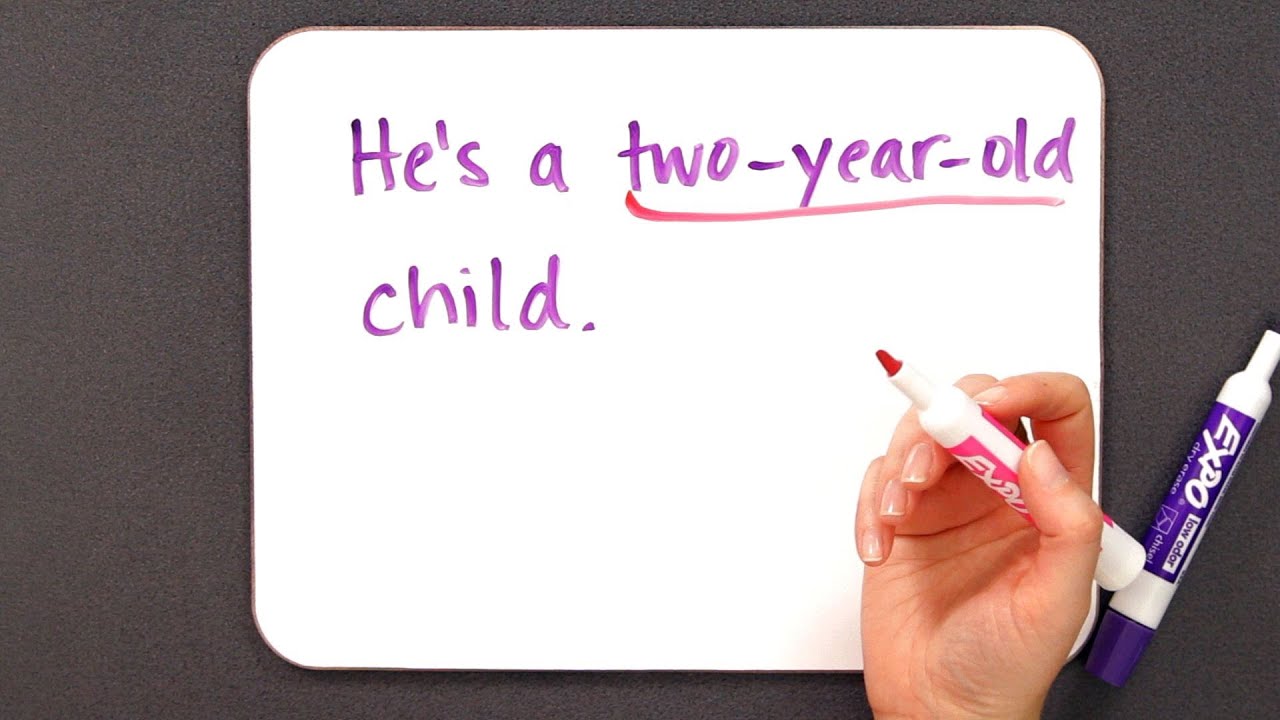How to Use Hyphens | Grammar Lessons
Full Playlist: https://www.youtube.com/playlist?list=PLLALQuK1NDrhq44LEu1DyBEJdGXR7JUne
–
–
Watch more Grammar Lessons videos: http://www.howcast.com/videos/515794-How-to-Use-Hyphens-Grammar-Lessons
So hyphens are basically used to link words that are related to each other, and most commonly we’ll use hyphens to link multiple adjectives that describe something. An example is a sentence like this. This is a one-way street. Well in this case, the phrase one-way is used as an adjective phrase to describe the noun street. So we need to hyphenate it to show that these two ideas are linked. And one test that you can use is take away the hyphen and ask yourself if it makes sense to say, “This is a one street.” Doesn’t quite make sense. And try it the other way. This is a way street.
That doesn’t make sense either. So that’s one way to know that you need to link these two words, and in a way these two words, when they’re hyphenated, become one word in a sense. They function like one word in the sentence, meaning one thing. It’s important to know that you’ll hyphenate an adjective phrase like that when it comes before a noun, but if it comes after the noun, usually you don’t need to hyphenate it. So if we take that sentence that we just read and change it around a little bit, so now it says, “The street only goes one way.” Well now our noun is here. Our noun and our subject is street. And we’re modifying it by saying it only goes one way. But the phrase one way now appears after the noun, and so we no longer need to hyphenate it. These two words can stand on their own. Here’s another example. He’s a two-year-old child.
Well in this case, we have the phrase two-year-old describing our child. Now let’s apply the test that we just talked about. Would it make sense to say, “He’s an old child?” He’s a year child? He’s a two child? None of those express what we’re trying to say, so we have to link these three words together to essentially create a super-adjective. And we use the hyphens to do that. If you were to say, “The child is two years old,” you would not have to use a hyphen, because in that case, two years old comes after the noun. So here’s a final example. Just like you often use hyphens when talking about ages, you often use it when talking about food, and here’s an example. I love chocolate-covered peanuts. So in this case, chocolate and covered are both describing peanuts. We hyphenate the two to create sort of a super-adjective. And we have, “I love chocolate-covered peanuts.” So I hope that that gives you some ideas about how to use a hyphen in your sentences.



![Private: [ID: 8fiReHeRtMs] Youtube Automatic](https://okumasaati.net/wp-content/uploads/2020/10/private-id-8firehertms-youtube-a-360x203.jpg)
![Private: [ID: 0YYNdqkXuRw] Youtube Automatic](https://okumasaati.net/wp-content/uploads/2020/10/private-id-0yyndqkxurw-youtube-a-360x203.jpg)
![[ID: Eb6fCsysOsE] Youtube Automatic](https://okumasaati.net/wp-content/uploads/2020/10/id-eb6fcsysose-youtube-automatic-360x203.jpg)
![[ID: 3STk-HcfHjQ] Youtube Automatic](https://okumasaati.net/wp-content/uploads/2020/10/id-3stk-hcfhjq-youtube-automatic-360x203.jpg)
![[ID: USfNqR9e0JA] Youtube Automatic](https://okumasaati.net/wp-content/uploads/2020/10/id-usfnqr9e0ja-youtube-automatic-360x203.jpg)
![[ID: JSXGagNzNLw] Youtube Automatic](https://okumasaati.net/wp-content/uploads/2020/10/id-jsxgagnznlw-youtube-automatic-360x203.jpg)